The Democratic Establishment May Fear Sanders More Than Trump
Chris Matthews abruptly resigned from MSNBC this week, but not before revealing how party elites really feel about the Vermont senator.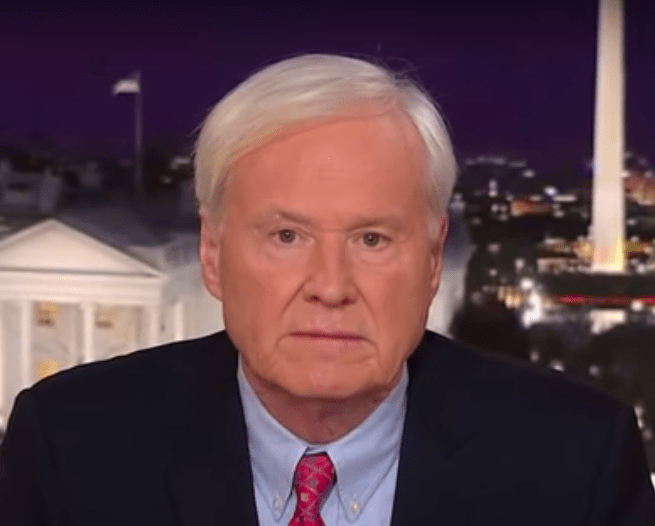 MSNBC's Chris Matthews resigned as host of "Hardball" this week. (YouTube screenshot)
MSNBC's Chris Matthews resigned as host of "Hardball" this week. (YouTube screenshot)
Mainstream news outlets keep pounding home the same message — that the “Democratic establishment” or “Democratic moderates” are worried sick that Bernie Sanders can’t beat Donald Trump. They worry about a Trump landslide, and a “down-ballot disaster” in congressional races.
Democratic insiders, we’re told, fear a rerun of 1972 — when progressive anti-war candidate George McGovern lost 49 of 50 states to Richard Nixon. Given our divided electoral map, with nearly 40 states safely blue or red, such a scenario in 2020 is thoroughly absurd.
That didn’t stop now ex-MSNBC host Chris Matthews — who abruptly resigned Monday night after having an on-air, Sanders-induced crackup in recent weeks — from offering this prophecy in mid-February: “I was there in 1972 at the Democratic convention when the people on the left were dancing in glee. … And they went on to lose 49 states in their glee. So that could happen again. So clearly. That’s what I see. It could happen again.”
Let’s put aside that mad prediction. Or Matthews’ paranoid Cold War comment linking Sanders somehow to public executions in New York City’s Central Park. Or his comparison of Sanders’ triumph in Nevada to the finality of the Nazi conquest of France.
And let’s recognize that even a crazed TV character — like the fictional Howard Beale in the film “Network” — is capable of blurting out an important truth once in a while. On the eve of the Nevada caucus, Matthews let the cat out of the bag about the true fears of many in the Democratic establishment:
I’m wondering whether the Democratic moderates want Bernie Sanders to be president. Maybe that’s too exciting a question to raise — they don’t like Trump at all. Do they want Bernie Sanders to take over the Democratic Party in perpetuity? If he takes it over, he sets the direction of the future of the party. Maybe they’d rather wait four years and put in a Democrat that they like.
Notice that the worry here is not that Sanders will lose, but that he will win. And proceed to transform the Democratic Party. And, presumably, the country.
Matthews was not expressing fear of 1972. It was more like fear of 1932. That’s when Franklin Roosevelt (a Sanders hero) triumphed and — propelled by labor and socialist movements — transformed society with a New Deal benefiting working people.
The corporate media’s “Bernie can’t win” drumbeat should arouse skepticism among news consumers. First, because political outcomes are difficult to predict — especially after an unstable reality-TV star and a young African American (middle name “Hussein”) won the White House. Second, because few have been more wrong for so long in their predictions than mainstream media pundits and their pals in the Democratic establishment.
In 2000, the cautious candidate of the Democratic establishment, Al Gore, was sure to win. He didn’t. In 2004, they told us the ever-vacillating John Kerry was the most electable. He lost. In 2016, media and party elites pushed hard for Hillary Clinton against the Sanders challenge, insisting she was the candidate who could beat Trump. She didn’t.
As a newspaper of the corporate Democratic establishment (and endorser of Gore, Kerry and Clinton in the Democratic primaries), The New York Times has long repeated the “Bernie can’t win” mantra. So I give the Times credit for publishing an important opposing view last week in a guest column by analyst Steve Phillips of Democracy in Color: “Bernie Sanders Can Beat Trump. Here’s the Math.”
Phillips cites head-to-head polling that shows Sanders beating Trump nationally and “outperforming Mr. Trump in polls of the pivotal battleground states of Michigan, Wisconsin and Pennsylvania.”
Phillips says the changing electorate (even from 2016 to 2020) and the particular way that Sanders won the popular vote in Iowa, New Hampshire and Nevada augur well for Sanders as the candidate who best matches up against Trump:
In all three early states, he received twice as much support from voters under 30 than his closest competitor. In Nevada, he received about 70 percent of the vote in the most heavily Latino precincts. … This will be the most racially diverse electorate ever, with people of color making up fully one-third of all eligible voters. The share of eligible voters from Generation Z (18-23-year-olds) will be more than twice as large in 2020 as it was in 2016.
More than other contenders, Sanders has shown he can inspire the two fastest-growing, anti-Trump sectors of the electorate — youth voters and Latinos. Writes Phillips: “In Michigan and Wisconsin, which were decided in 2016 by roughly 11,000 and 22,700 votes respectively, close to a million young people have since turned 18.” He notes that “160,000 Latinos have turned 18” in Arizona, a state Trump won by only 91,000 votes.
I co-produced a documentary in which we interviewed working-class whites in the Rust Belt of Ohio, longtime Democrats who’d voted for Obama, voted for Sanders in the 2016 Democratic primary and then jumped to Trump (often out of anger over NAFTA). These are the so-called “Obama-Trump voters” — and no Democratic nominee is likely to win more of them back than Sanders.
The progressive senator is also “most likely to reclaim those Democratic voters who defected to the Green Party” — the “Obama-Stein voters.” As Phillips points out: “The increase in votes for Jill Stein from 2012 to 2016 was greater than Mr. Trump’s margin of victory in Michigan and Wisconsin.”
As the South Carolina primary showed, one crucial voting bloc that Sanders has so far had trouble inspiring is older African Americans — although he beat Biden among blacks under 30, according to an “NBC News” exit poll.
If mainstream media spent less time on horse-race analysis and dubious predictions, and more time accurately presenting the candidates’ records, perhaps almost every voter of every color would know that Sanders was a brave civil rights activist at the University of Chicago — a student leader in the then-renowned Congress on Racial Equality (CORE), who sat-in and was arrested protesting discrimination against African Americans.
The pictures of young Bernie in action are dramatic and important to see.
At least as important as seeing Trump swing a golf club — or watching the latest anti-Sanders smear from TV pundits carrying on the Chris Matthews tradition.
Your support is crucial...As we navigate an uncertain 2025, with a new administration questioning press freedoms, the risks are clear: our ability to report freely is under threat.
Your tax-deductible donation enables us to dig deeper, delivering fearless investigative reporting and analysis that exposes the reality beneath the headlines — without compromise.
Now is the time to take action. Stand with our courageous journalists. Donate today to protect a free press, uphold democracy and uncover the stories that need to be told.

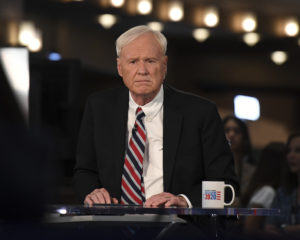
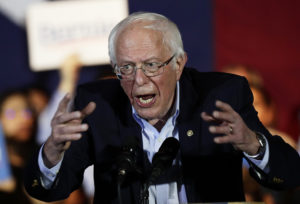
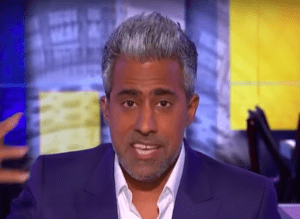
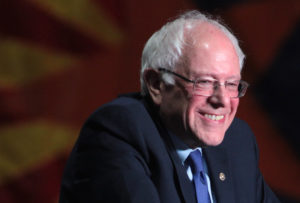
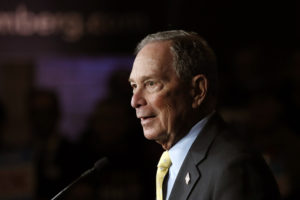
You need to be a supporter to comment.
There are currently no responses to this article.
Be the first to respond.